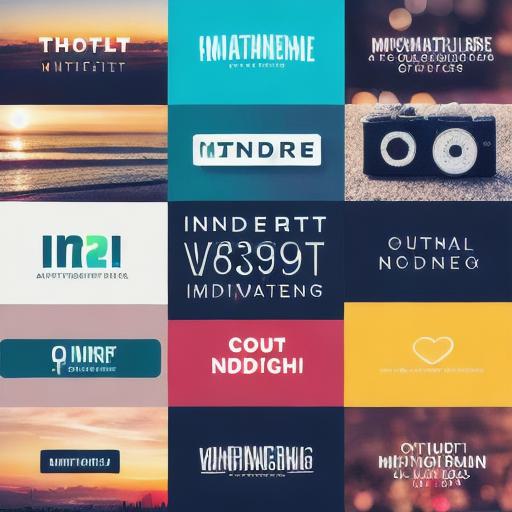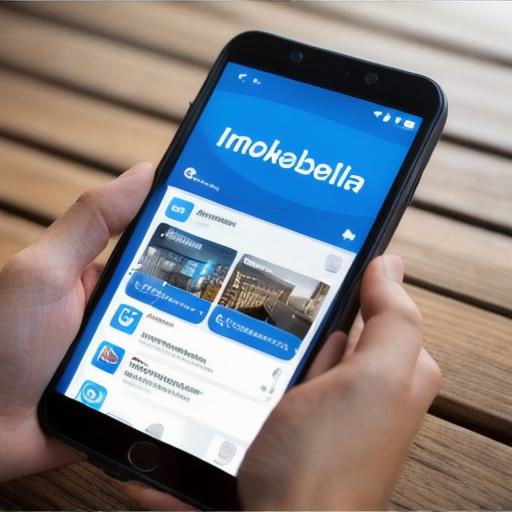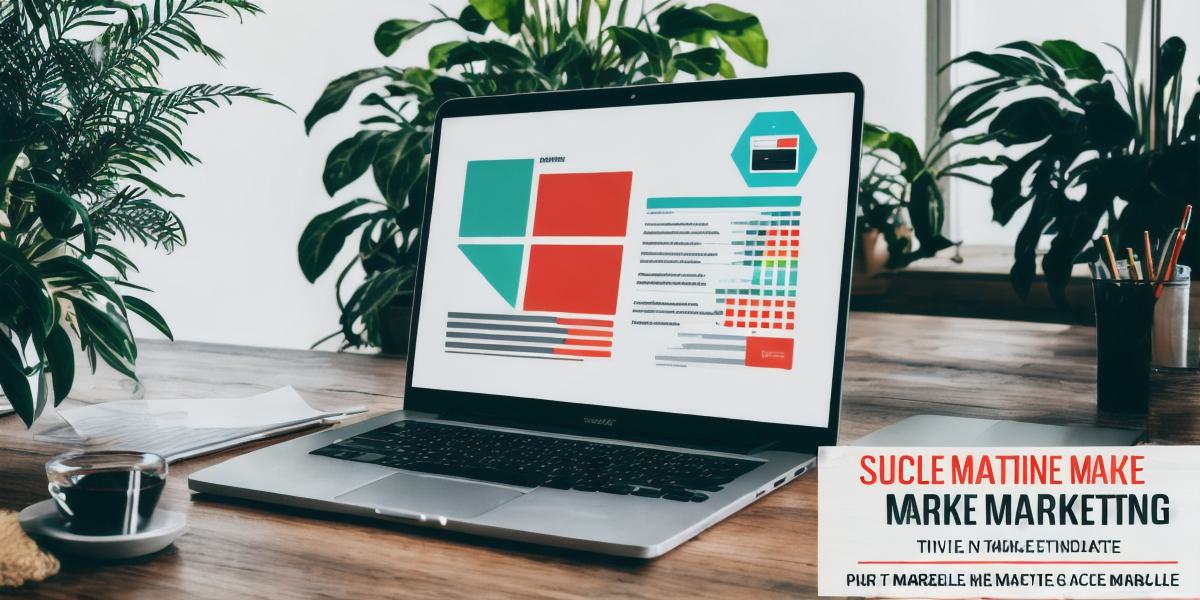As a business owner, you know how important it is to stay up-to-date with the latest marketing tools and technologies. But with so many options available, it can be overwhelming to determine which ones are truly worth investing in. That’s why we’ve compiled this comprehensive guide to the top 5 new marketing tools for businesses in 2021. From social media advertising to chatbots and AI-powered analytics, these tools will help you take your marketing efforts to the next level and achieve unparalleled results.
Table of Contents
*
Introduction
+ Explanation of the importance of staying up-to-date with the latest marketing tools
*
The Rise of Artificial Intelligence in Marketing
+ Explanation of AI and its applications in marketing
+ Examples of companies using AI to improve their marketing efforts
*
Social Media Advertising
+ Overview of the current state of social media advertising
+ Comparison of different platforms and their targeting capabilities
+ Real-life examples of successful social media campaigns
*
Chatbots and Virtual Assistants
+ Explanation of chatbots and virtual assistants and their applications in marketing
+ Examples of companies using chatbots and virtual assistants to improve customer service
+ Case studies demonstrating the effectiveness of chatbots in marketing
*
Influencer Marketing
+ Explanation of influencer marketing and its importance in 2021
+ Overview of different types of influencers and their target audiences
+ Real-life examples of successful influencer marketing campaigns
* AI-Powered Analytics
+ Explanation of how AI can improve analytics and data analysis for businesses
+ Examples of companies using AI to gain insights into customer behavior
+ Case studies demonstrating the effectiveness of AI in improving business outcomes
*
Conclusion
+ Summary of the main points covered in the article
+ Thought-provoking ending encouraging businesses to embrace innovation and change
Introduction
In today’s fast-paced digital world, marketing is all about staying ahead of the curve. With new technologies and tools emerging every day, it can be challenging for businesses to determine which ones are truly worth investing in. That’s why we’ve compiled this comprehensive guide to the top 5 new marketing tools for businesses in 2021. From social media advertising to chatbots and AI-powered analytics, these tools will help you take your marketing efforts to the next level and achieve unparalleled results.
The Rise of Artificial Intelligence in Marketing
Artificial intelligence (AI) is quickly becoming an integral part of modern marketing. By using algorithms and machine learning techniques, AI can analyze vast amounts of data and gain insights into customer behavior that were previously impossible to obtain. This allows businesses to create more personalized and targeted marketing campaigns that resonate with their target audience.
Some examples of companies using AI in marketing include:
- Amazon, which uses AI algorithms to recommend products to customers based on their browsing and purchase history.
- Netflix, which uses AI to recommend TV shows and movies to viewers based on their viewing habits.
- Coca-Cola, which used an AI chatbot to help consumers find the perfect flavor of Coke for them. The chatbot analyzed data from social media and other sources to create personalized recommendations based on each customer’s preferences.
Social Media Advertising
Social media advertising has become an essential tool for businesses looking to reach their target audience online. With the rise of platforms like Facebook, Instagram, Twitter, and TikTok, businesses have more options than ever before to target specific demographics and interests.
To get the most out of your social media advertising efforts, it’s important to compare different platforms and their targeting capabilities. For example, Instagram is great for visual content and has a highly engaged user base, while Facebook is still a powerhouse for reaching broad audiences. TikTok, on the other hand, is perfect for short-form videos and has a younger demographic that businesses may want to target.
Real-life examples of successful social media campaigns include:
- Nike’s "Dream Crazier" campaign, which featured female athletes breaking barriers and pushing boundaries in sports. The campaign was highly successful on social media, generating over 120 million views on Facebook alone.
- Glossier’s social media presence, which has helped the company build a cult following among beauty enthusiasts. The brand uses Instagram to showcase its products and share behind-the-scenes content with its followers.
- Old Spice’s viral "Man Your Man Could Smell Like" campaign, which generated over 48 million views on YouTube and helped the company boost sales by 107%.
Chatbots and Virtual Assistants
Chatbots and virtual assistants are becoming increasingly popular tools for businesses looking to improve customer service and engagement. These AI-powered bots can answer customer inquiries, provide product recommendations, and even place orders, all without the need for human intervention.
Some examples of companies using chatbots and virtual assistants include:
- H&M, which uses a chatbot on its website to help customers find the perfect outfit based on their preferences and budget.

- KLM Royal Dutch Airlines, which uses a chatbot to help customers book flights, manage their travel itineraries, and even answer questions about the airline’s policies and procedures.
- 24/7 Customer Service, which uses a virtual assistant to provide 24/7 customer support for businesses of all sizes. The virtual assistant can handle a variety of tasks, from answering frequently asked questions to processing orders and managing customer relationships.
Influencer Marketing
Influencer marketing has become an essential tool for businesses looking to reach new audiences and build brand awareness. By partnering with influencers who have large followings on social media, businesses can tap into the influencer’s audience and leverage their credibility and influence to promote their products or services.
There are different types of influencers, including:
- Micro-influencers, who have smaller but highly engaged followings. These influencers are often more authentic and trustworthy than macro-influencers and can be a great fit for niche brands.
- Macro-influencers, who have larger followings and can help businesses reach a wider audience. These influencers are often celebrities or well-known personalities who can command high fees for sponsored content.
- Micro-moments, which refer to brief moments when people turn to their devices for information, entertainment, or social interaction. By leveraging these micro-moments, businesses can reach consumers in the moment and provide them with valuable content that drives engagement and sales.
Real-life examples of successful influencer marketing campaigns include:
- Glossier’s partnership with beauty blogger Emily Weiss, who has over 1 million followers on Instagram and was instrumental in helping the brand build its following and establish itself as a leader in the beauty industry.
- Nike’s "Just Do It" campaign, which featured athletes of all backgrounds and abilities sharing their stories and inspiring others to achieve their dreams. The campaign resonated with consumers around the world and helped Nike become one of the most recognizable brands in the world.
- Coca-Cola’s partnership with hip-hop artist Kendrick Lamar, who created a limited-edition can for the brand that featured his likeness and a personalized message encouraging consumers to "Share a Coke" with their friends and family. The campaign generated over 2 million shares on social media and helped Coca-Cola boost sales by 8%.
AI and Machine Learning
AI and machine learning are becoming increasingly important tools for businesses looking to gain insights into customer behavior and optimize their marketing efforts. These technologies can analyze vast amounts of data and identify patterns and trends that were previously impossible to detect.
Some examples of companies using AI and machine learning include:
- Amazon, which uses AI algorithms to recommend products to customers based on their browsing and purchase history. The company also uses machine learning to optimize its pricing and inventory management strategies.
- Netflix, which uses AI to recommend TV shows and movies to viewers based on their viewing habits. The company also uses machine learning to analyze viewer behavior and make adjustments to its content strategy in real-time.

- Google, which uses AI to improve the accuracy of its search algorithms and provide users with more relevant results. The company also uses machine learning to optimize its advertising platform and help businesses target their ads more effectively.
Conclusion
In conclusion, there are many tools and techniques that businesses can use to improve their marketing efforts and reach new audiences online. From social media advertising and influencer marketing to AI and machine learning, these technologies can help businesses gain valuable insights into customer behavior and optimize their marketing strategies for maximum impact. By staying up-to-date with the latest trends and tools in the industry, businesses can stay ahead of the curve and continue to grow and thrive in an increasingly competitive online landscape.




